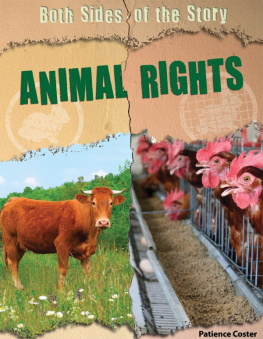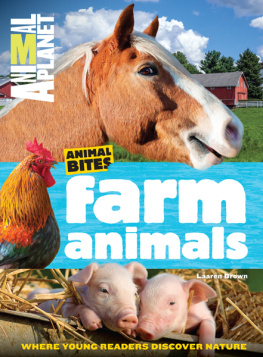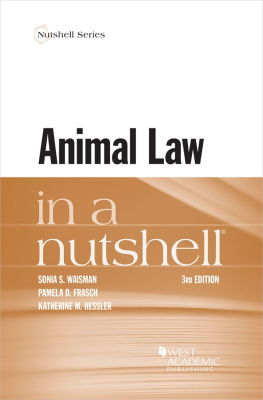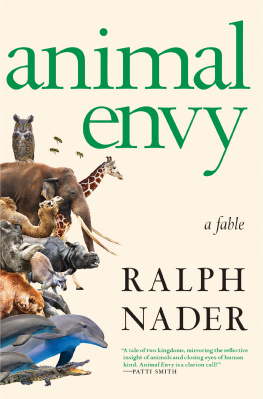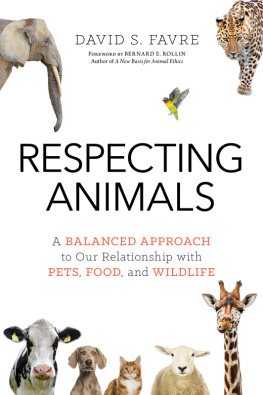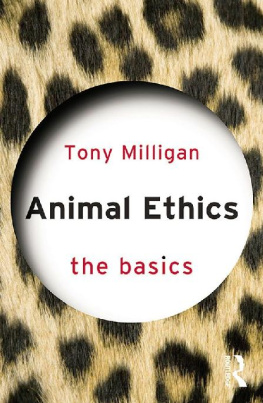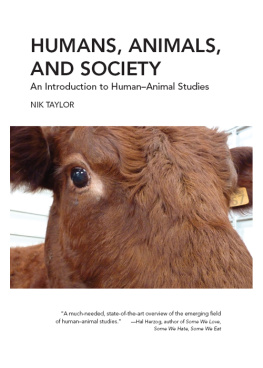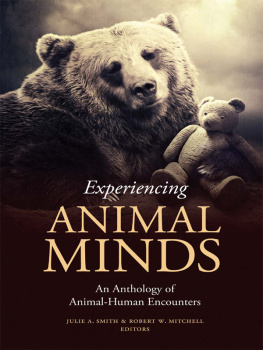This edition first published in 2013 by:
The Rosen Publishing Group, Inc.
29 East 21st Street, New York, NY 10010
Copyright 2013 Arcturus Publishing Limited
First Edition
All rights reserved. No part of this book may be reproduced in any form without permission in writing from the publisher, except by a reviewer.
Editors: Nicola Barber and Joe Harris
Picture researcher: Nicola Barber
Designer: Ian Winton
Picture credits:
Corbis: 11 (Karl Ammann), 27 (Najlah Feanny), 41 (Charlie Mahoney). Science Photo Library: 8 (CCI Archives). Shutterstock: cover left (Ivonne Wierink), cover right (Dario Diament), title page and 29 (Tomasz Bidermann), 7 (Paul Prescott), 12 (Losevsky Pavel), 14 (anyamay), 17 (Picsfive), 18 (RGtimeline), 21 (Lucia Pitter), 23 (KROMKRATHOG), 24 (lculig), 30 (Vladimir Melnik), 33 (Natalia Mikhaylova), 35 (Randy Rimland), 37 (Diane Garcia), 38 (Wolfgang Kruck), 42 (A7880S).
Library of Congress Cataloging-in-Publication Data
Coster, Patience.
Animal rights/Patience Coster.1st ed.
p. cm.(Both sides of the story)
Includes bibliographical references and index.
ISBN 978-1-4488-7184-1 (library binding)
1. Animal rightsJuvenile literature. 2. Animal welfareJuvenile literature. I. Title.
HV4708.C67 2012
179.3dc23
2012023102
Manufactured in China
SL002125US
CPSIA Compliance Information: Batch #W13YA: For further information, contact Rosen Publishing, New York, New York, at 1-800-237-9932.
Different From Us?
Planet Earth is a populous place, inhabited by millions of species of animalsfrom the enormous blue whale to microscopic organisms. Over thousands of years, the human animal has gained dominance over other species. Today, many humans use animals or their products for food and clothing, as beasts of burden, in entertainment and medical research and for companionship. But should the fact that humans have bigger brains and greater skills give them the right to use animals as they wish? Or should animals, like people, have rights under the law?
Until relatively recently, the rights of animals were fairly low on the agenda. Life was cheap and the struggle to survive was bloody and brutal. One stark example of this struggle is that of the passenger pigeon. As recently as 200 years ago the passenger pigeon was the most common bird in North America. During the late 19th and early 20th centuries it was hunted on a massive scale because it provided cheap, easily accessible meat for poorer people. The hunting was catastrophic for the birds, resulting in extinction when the last passenger pigeon died in 1914.
Welfare versus rights
During the 1600s a few people began to campaign against intentional cruelty toward animals. Eventually animal welfare laws were passed in a number of countries. The aim of these laws was to prevent unnecessary cruelty to animals. While few people today would argue against the idea of animal welfare, the subject of animal rights attracts passionate defenders and opponents. The principle of animal rights is that the basic needs of animalsthe right to life, to freedom from suffering and from captivityshould be given the same consideration as those of humans. These rights for animals under human control have been set out in the so-called five freedoms (see panel, page 6).
The five freedoms
freedom from hunger and thirst
freedom from discomfort
freedom from pain, injury or disease
freedom to express normal behavior
freedom from fear and distress
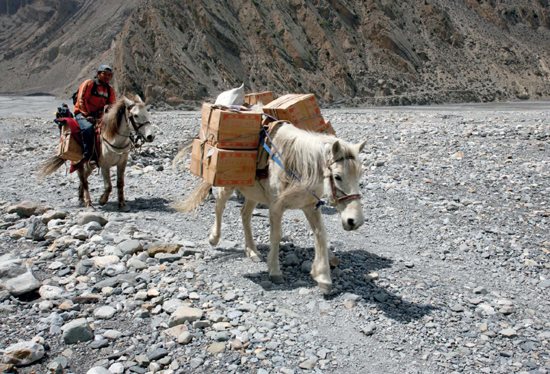
Ponies carry heavy loads through a Himalayan mountain pass. Some humans treat beasts of burden, such as horses, donkeys and mules, as members of the family, but many animals are cruelly mistreated and neglected.
Since the 1970s, a growing number of people have begun to insist that many higher animals (primates in particular) should be regarded as nonhuman persons entitled to rights, like people. Meanwhile there are still many who believe that animals exist simply for humans to use as they see fit. For most people, the answer lies somewhere between the two extremes.
Without feeling?
In the 17th century, Ren Descartes, a French mathematician, philosopher and scientist, put forward the theory that animals were automata (robots), without consciousness. He said that, unlike people, animals had no souls, no minds, no reason and were therefore unable to suffer or feel pain.
They know nothing
[Animals] eat without pleasure, cry without pain, grow without knowing it; they desire nothing, fear nothing, know nothing.
Philosopher Nicolas Malebranche (16381715)
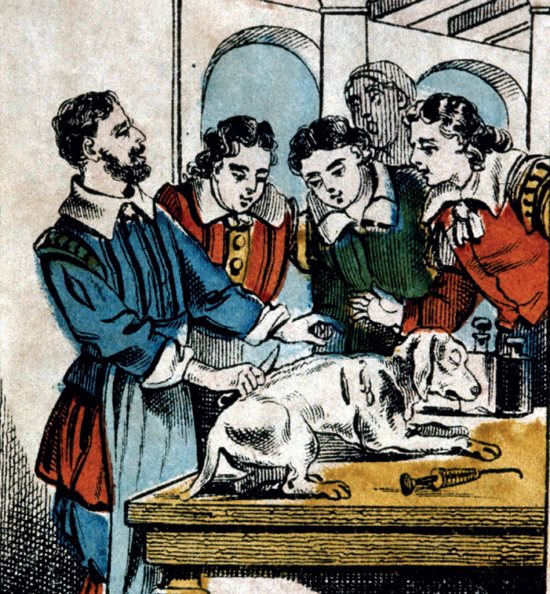
In the early 17th century, the English physician William Harvey used vivisection (cutting into live animals) to explore the circulation of blood in mammals. Without effective anesthetics the animals must have suffered extreme pain.
Feeling pleasure and pain
There is no fundamental difference between man and the higher mammals in their mental faculties [abilities] ... The lower animals, like man, manifestly [clearly] feel pleasure and pain, happiness and misery.
Naturalist Charles Darwin,The Descent of Man(1871)
He also believed that the ability to reason distinguished humans from the animal kingdom. Descartes theory confirmed what many people thoughtthat humans were beings with superior sensitivitiesand it was used to justify the widespread practice of vivisection, as well as other types of casual cruelty toward animals.
Can they suffer?
At the end of the 18th century, a revolution overthrew the monarchy in France and prompted some observers to question what had been up until then the natural order of things. It challenged the notion that some people were born to be rich and others to be poor, some to rule and others to serve. This way of thinking would lead, eventually, to the abolition of slavery, a practice that many had regarded as natural and acceptable. The British philosopher Jeremy Bentham extended this reasoning to consider the way in which humans treated animals as things. In response to the idea that animals lacked consciousness, he said: ...the question is not, Can they reason; nor, Can they talk, but Can they suffer?
While Descartes views still influence the attitudes of some people today, most of us accept that animals can suffer and do so on a daily basis (as do many humans). But does their ability to suffer mean they should have rights? Or is it simply our moral duty to treat them as well as we can? There is also the question about how we measure animal suffering. For example, how can we determine whether a relatively simple organism, such as a beetle or tiny fish, suffers to the same degree as a more complex animal, such as an elephant or orangutan?

